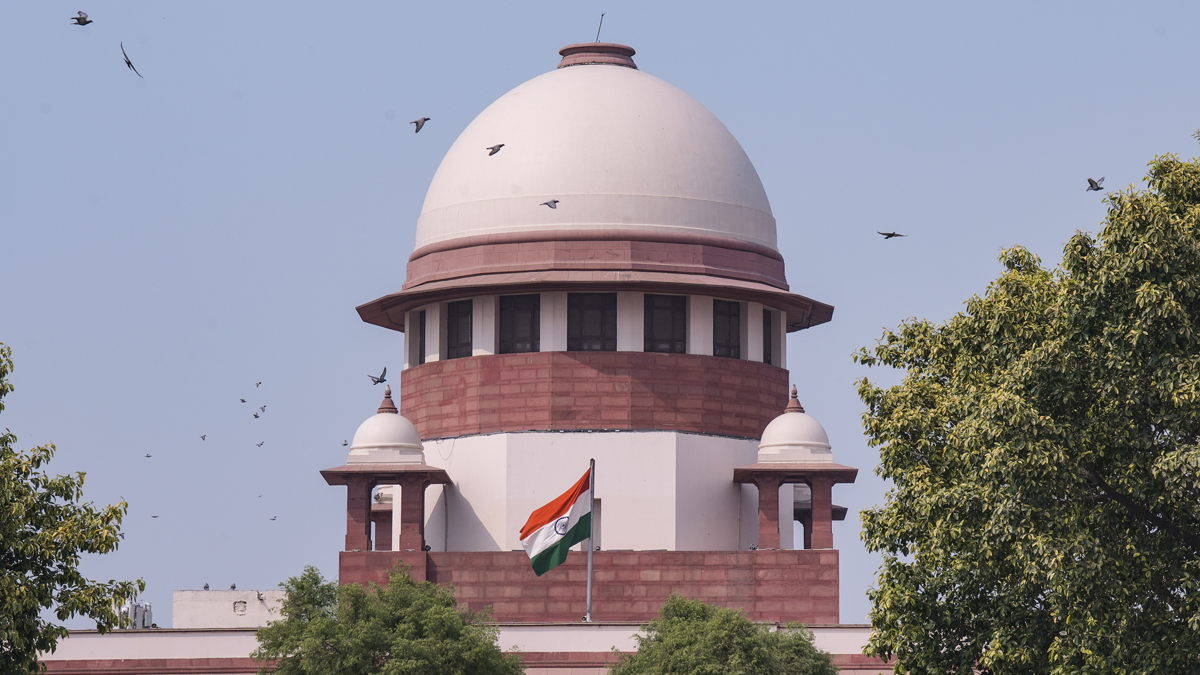Will SC stay key provisions of the Waqf Amendment Act today?
 New Delhi: View of the Supreme Court of India, in New Delhi, Wednesday, April 16, 2025. The apex court has begun hearing on a batch of petitions challenging the constitutional validity of the Waqf (Amendment) Act, 2025. (PTI Photo/Manvender Vashist Lav)(PTI04_16_2025_RPT222B)
New Delhi: View of the Supreme Court of India, in New Delhi, Wednesday, April 16, 2025. The apex court has begun hearing on a batch of petitions challenging the constitutional validity of the Waqf (Amendment) Act, 2025. (PTI Photo/Manvender Vashist Lav)(PTI04_16_2025_RPT222B)The Supreme Court will continue hearing petitions challenging the recently passed Waqf (Amendment) Act on Thursday. The top court is likely to pass an interim order regarding key provisions in the Act on Thursday, including on the appointment of non-Muslims to the Waqf Board.
A bench comprising Chief Justice of India Sanjiv Khanna and Justices P.V. Sanjay Kumar and K.V. Viswanathan will continue to hear the matter on Thursday. Besides the appointment of non-Muslims in the Waqf Council and Boards, the top court raised questions regarding denotifying waqf-by-user properties and powers granted to district collectors under the amended Act for determining waqf properties.
The apex court questioned the government on non-Muslims outnumbering Muslims in the Waqf Council and said only eight members of the 22-member council are Muslims. The CJI-led bench asked the government whether it would appoint Muslims in Hindu boards. “Mr Mehta, are you saying that from now on, you will allow Muslims to be part of the Hindu endowment boards? Say it openly," Bar and Bench reported quoting the bench.
Appearing for Centre, Solicitor General Tushar Mehta said he would file an affidavit that not more than two members would be non-Muslims. Pointing out the provisions of the amended Act, the bench remarked, “So, as per the Act, eight members are Muslims. Two judges may not be Muslims! Then the rest are non-Muslims.”
However, solicitor general’s response drew a sharp reaction from the bench. When Mehta said, “Then this bench also cannot hear the case," the CJI-led bench said, “What! When we sit over here, we lose our religion. For us, both sides are the same. How can you compare it with the judges? Why not have non-Hindus also on the advisory board of Hindu endowments then?”
The bench also expressed concern regarding recent violence over the Act in West Bengal. While concluding the hearing on Wednesday, the bench noted it may pass the following interim order on key provisions: “Whichever properties were declared by court to be waqf will not be de-notified or be treated as non-waqf, whether it is waqf by user or not; Collector can continue with proceedings, but the provision will not be given effect to; regarding Waqf boards and Waqf Council, ex-officio members can be appointed. But the other members have to be Muslims,” the publication reported.
The Supreme Court is hearing over 70 petitions challenging the validity of the Waqf Amendment Act. Several states including Maharashtra and Haryana have filed petitions in favour of the Act.
India